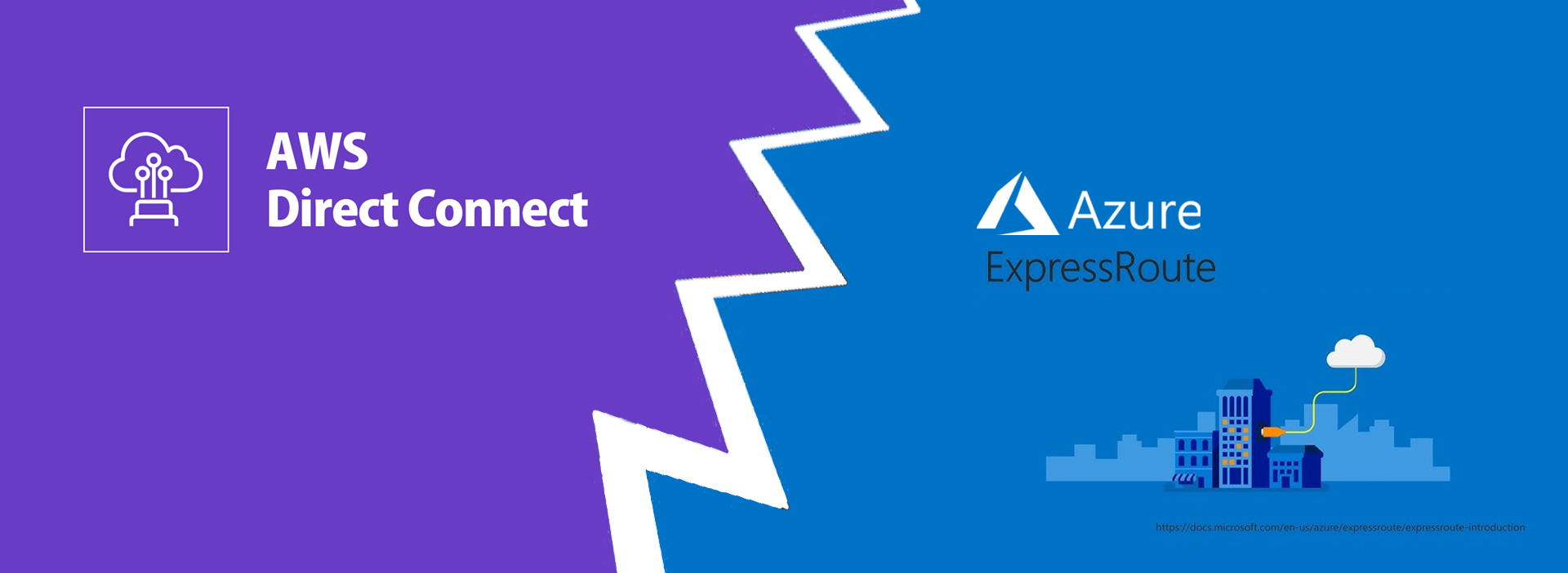Which One is Right for Your Business?
As businesses increasingly move workloads to the cloud, the need for reliable, high-performance, and secure connectivity becomes critical. Public internet connections may not always provide the necessary stability and speed for enterprise applications. That’s where AWS Direct Connect and Azure ExpressRoute come in. These services offer dedicated, private connections to cloud environments, ensuring better security, reduced latency, and higher reliability. In this article, we’ll compare AWS Direct Connect and Azure ExpressRoute to help you choose the best option for your business.
What is AWS Direct Connect?
AWS Direct Connect is a dedicated network service that establishes a private connection between your on-premises infrastructure and Amazon Web Services (AWS). Instead of relying on public internet pathways, Direct Connect enables lower latency, higher bandwidth, and more consistent network performance.
Key Benefits of AWS Direct Connect:
- Lower Latency – Direct, dedicated fiber connections reduce lag and improve application performance.
- Enhanced Security – Avoids public internet exposure, ensuring better data privacy.
- High Bandwidth – Supports speeds from 50 Mbps to 100 Gbps, suitable for data-intensive applications.
- Consistent Network Performance – Reduces unpredictable network congestion and packet loss.
What is Azure ExpressRoute?
Azure ExpressRoute is Microsoft’s private connectivity service that links on-premises networks to Azure via a dedicated private connection. Similar to AWS Direct Connect, it bypasses the public internet, offering greater speed, security, and reliability.
Key Benefits of Azure ExpressRoute:
- Low Latency & High Speed – Provides speeds ranging from 50 Mbps to 100 Gbps, enabling seamless cloud integration.
- Hybrid Connectivity – Connects directly to Microsoft cloud services like Azure, Office 365, and Dynamics 365.
- Improved Security & Compliance – Keeps sensitive business data off the public internet.
- Global Connectivity – Microsoft’s global backbone ensures better performance across multiple regions.
AWS Direct Connect vs. Azure ExpressRoute: A Comparison
| Feature | AWS Direct Connect | Azure ExpressRoute |
|---|---|---|
| Connectivity Type | Private direct fiber link | Private direct fiber link |
| Latency | Low | Low |
| Bandwidth Options | 50 Mbps – 100 Gbps | 50 Mbps – 100 Gbps |
| Security | Private, no internet exposure | Private, no internet exposure |
| Multi-Cloud Support | AWS-only | Azure + Microsoft Services (Office 365, Dynamics 365) |
| Use Cases | AWS applications, hybrid cloud | Azure applications, hybrid cloud |
| Pricing Model | Based on port speed & data transfer | Based on circuit size & data transfer |
Choosing the Right Solution for Your Business
When deciding between AWS Direct Connect and Azure ExpressRoute, consider the following:
- Existing Cloud Environment: If your infrastructure is primarily on AWS, Direct Connect is the logical choice. If you rely on Microsoft services, ExpressRoute offers better integration.
- Multi-Cloud Strategy: If your business operates across multiple cloud platforms, you may need both services or third-party interconnect solutions.
- Compliance Requirements: Both services provide enhanced security, but specific compliance needs may influence your choice.
- Cost Considerations: Pricing varies based on bandwidth, data transfer, and regional availability. Comparing costs for your specific use case is essential.
Both AWS Direct Connect and Azure ExpressRoute provide powerful solutions for businesses needing private, high-speed, and secure cloud connectivity. The best choice depends on your existing infrastructure, cloud service provider preference, and business requirements. If your company operates within AWS, Direct Connect is ideal, while Azure ExpressRoute is best for organizations leveraging Microsoft’s ecosystem.
Still unsure which service fits your needs? Consult with a cloud networking expert to assess your infrastructure and design the best connectivity strategy for your business.




